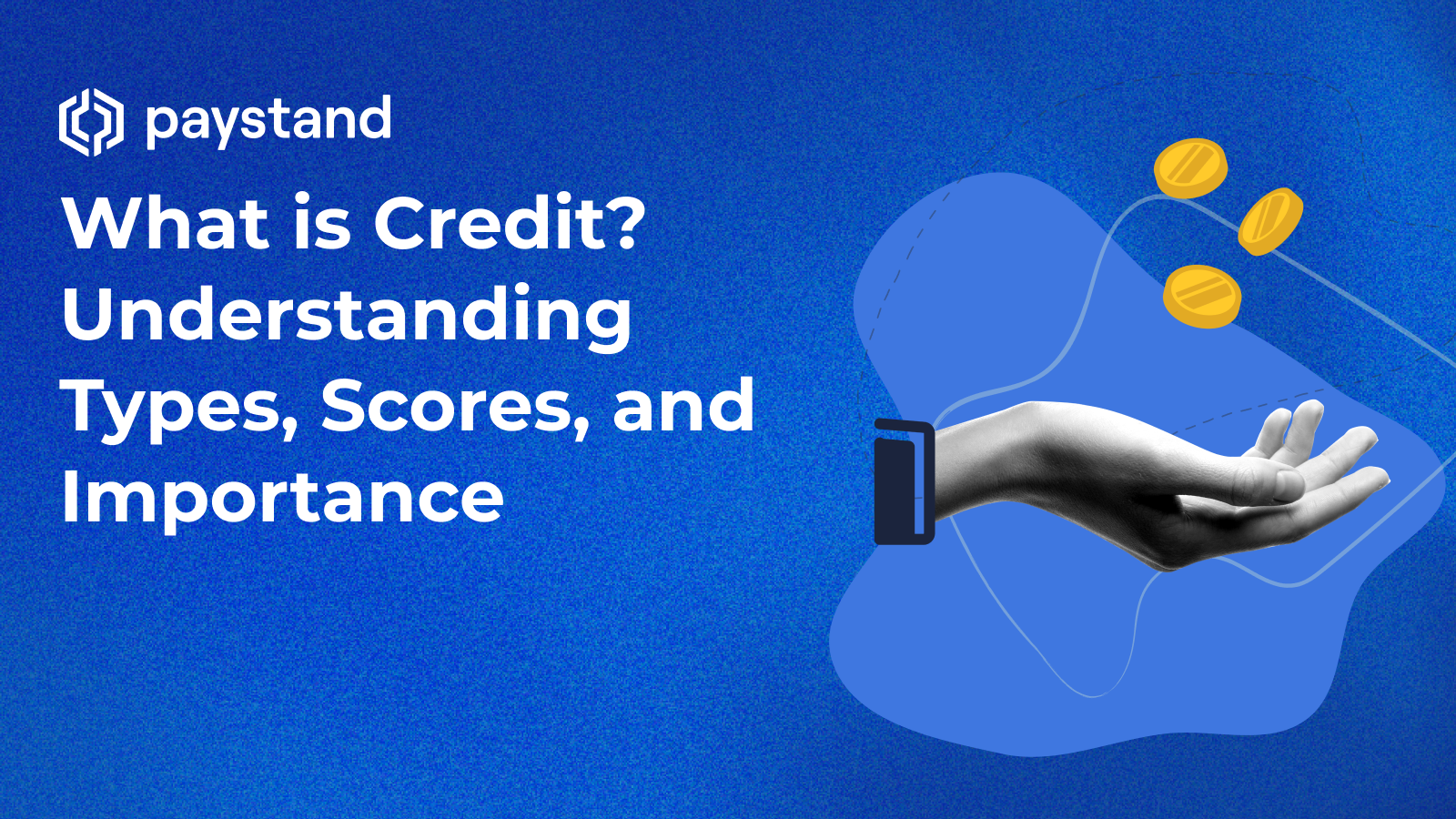What is Credit? Understanding Types, Scores, and Importance

Table of Contents
- What is a Simple Definition of Credit?
- What is Credit in Finance?
- How Does Credit Work?
- What’s Included in a Credit Report?
- What is a Credit Score?
- What are the Different Types of Credit?
- Why is Credit Important?
Key Takeaways
- Credit Basics: Credit allows individuals to borrow money or access services now, with payment promised for later.
- Credit Reports: Credit bureaus compile reports with details about loans, payment history, and setbacks, helping creditors assess creditworthiness.
- Credit Scores: A three-digit score, based on credit report data, summarizes a person’s creditworthiness, with higher scores signaling lower lending risk.
- Types of Credit: Key types include charge cards, installment loans, revolving credit, and service credit.
- Importance of Good Credit: A strong credit history can secure better loan terms, rental access, lower insurance rates, and even job opportunities.
In the U.S., credit is woven into almost every financial milestone—from buying a first car to securing a home. Credit lets us access what we need now, with a promise to pay later. But how does it really work, and why is a strong credit score so powerful? This guide unpacks the essentials, helping you understand how credit shapes financial opportunities and security.

What is a Simple Definition of Credit?
Credit is the ability to borrow money or access goods and services now, with the promise to pay back later.
What is Credit in Finance?
Within B2B transactions, credit often involves deferred payments for goods or services, allowing businesses to manage cash flow while meeting operational needs. However, using credit cards for B2B payments can add significant processing fees, impacting both buyers and suppliers. Understanding these fees is crucial for businesses aiming to optimize payment costs and maintain financial flexibility.
How Does Credit Work?
Today’s credit system relies on a borrower’s history of repaying loans and managing debt, recorded by independent credit bureaus: Experian, Equifax, and TransUnion. These bureaus create credit reports that summarize borrowing and repayment activities. Creditors use these reports to assess whether to offer you credit and how much they will offer you.
What’s Included in a Credit Report?
Credit reports contain essential information about your financial behavior, including:
- Loans: Details about borrowed amounts and repayment status
- Financial Setbacks: Records of bankruptcies, foreclosures, and repossessions
- Credit Card Accounts: Account limits and outstanding balances
- Payment History: Record of on-time and missed payments
By examining this information, creditors can determine your reliability and assess whether to extend credit.
What is a Credit Score?
A credit score is a three-digit number derived from information in your credit reports. Scoring models like FICO and VantageScore analyze various factors, such as payment history and credit utilization, to determine a score that reflects your creditworthiness. Higher scores generally indicate a stronger credit history and a lower lending risk for creditors.

What are the Different Types of Credit?
There are four main types of credit, each serving a different financial purpose:
- Charge Cards: Function like credit cards but require full monthly repayment.
- Installment Credit: Loans repaid in fixed, equal installments over a set period (e.g., car loans, student loans).
- Revolving Credit: Credit cards fall under this type, allowing flexible payments up to a set borrowing limit.
- Service Credit: Agreements to pay for services, like utilities or internet, after usage. In some cases, service credit payments may influence your credit score.
Why is Credit Important?
Credit is essential for securing loans and credit cards with favorable terms, but its impact extends beyond financial products. Good credit influences key aspects of life, from securing better interest rates to increasing access to rental housing, insurance, and even job opportunities. A strong credit history is a financial tool that improves your quality of life and broadens access to economic resources.
Understanding credit is crucial for managing your financial health and accessing essential resources. To learn more about optimizing your payment processes and leveraging digital payments, check out our guide on Digital Payments in Your Supply Chain.





%20(1)%20(1).jpg?width=100&height=100&name=IMG_3752%20(1)%20(1)%20(1).jpg)